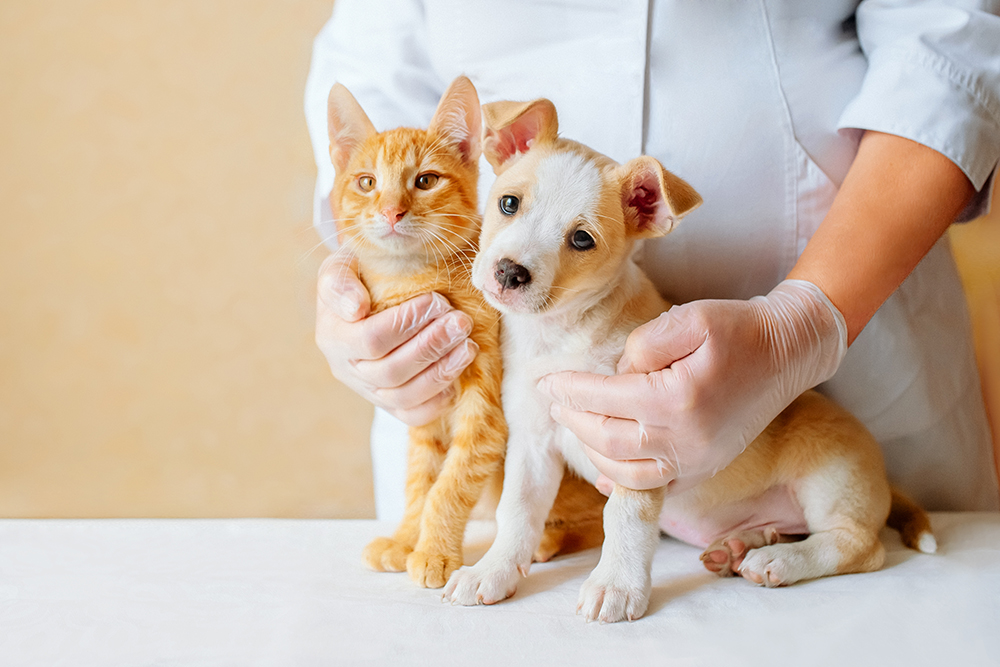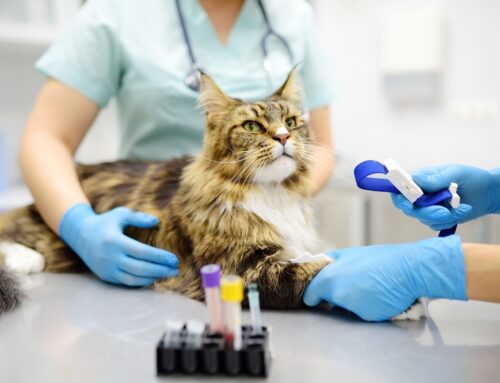Bringing home a new puppy or kitten is a joyful whirlwind—one moment they’re napping in your lap, the next they’re chewing your shoelace, exploring under the couch, or learning to zoom across the floor. But beneath the adorable chaos, young pets are especially vulnerable to health emergencies.
At Oliver Animal Hospital in Austin, Texas, we know how overwhelming those first few months can be. That’s why we’ve created this guide—to help you recognize, manage, and even prevent some of the most common (and serious) health crises your puppy or kitten might face.
Why Puppies and Kittens Need Extra Protection
Young pets are full of curiosity, but their little bodies aren’t quite ready for the world’s challenges. Here’s why they’re more at risk:
- Immature immune systems leave them open to viruses and infections like parvo, panleukopenia, and upper respiratory illnesses.
- Exploratory behavior means they chew and swallow things they shouldn’t—everything from socks to houseplants.
- Small size and fragile bones increase the risk of serious injury from falls, rough play, or accidental bites.
- Sensitive stomachs often react to dietary changes or new treats with diarrhea and vomiting.
In short? They’re adorable—and accident-prone.
Common Puppy and Kitten Emergencies (and What to Do)
Parvovirus & Panleukopenia
These life-threatening viruses strike young, unvaccinated pets.
- Signs: Vomiting, bloody diarrhea, lethargy, dehydration, fever
- Action: This is a medical emergency—seek immediate care. Early, aggressive treatment gives your pet the best chance of survival.
- Prevention: Stay on schedule with core vaccines. Avoid parks or socializing with unknown animals until your vet gives the all-clear.
Foreign Body Ingestion
Puppies and kittens are like toddlers—they explore the world with their mouths. But socks, toys, string, and hair ties can all become serious intestinal blockages.
- Signs: Vomiting, loss of appetite, straining, belly pain
- Action: Don’t wait. Foreign bodies often require surgery. Early intervention can save your pet’s life.
Injuries from Falls or Play
A jump off the couch, a tumble down stairs, or playtime with a bigger dog can lead to sprains, fractures, or head trauma.
- Common injuries: Limping, swelling, crying out in pain, reluctance to move
- Action: Keep your pet calm and restrict movement. Seek prompt veterinary attention to rule out serious damage.
Bites from Other Pets
Whether it’s a scuffle with a household pet or a playdate gone wrong, bite wounds can easily become infected.
- What to look for: Puncture marks, swelling, sensitivity to touch
- What to do: Even small bites can introduce bacteria deep into tissue. Clean gently and call your vet for an exam.
Upper Respiratory Infections (URIs) & Kennel Cough (CIRD)
Common in shelter pets or those recently adopted, these infections are contagious and uncomfortable.
- Symptoms: Sneezing, nasal discharge, watery eyes, coughing, lethargy
- Action: Most mild cases can be managed at home, but see your vet to prevent pneumonia or complications.
Diarrhea from Parasites or New Treats
Loose stool is common in young pets—but it can be a sign of trouble.
- Causes: Worms, giardia, diet changes, or food sensitivity
- Watch for: Diarrhea lasting more than 24 hours, blood in stool, or signs of dehydration
- Action: Schedule a vet visit and bring a stool sample. Parasites are treatable—but dangerous if ignored.
Recognizing a True Emergency
Call your vet immediately if your puppy or kitten:
- Has trouble breathing or blue gums
- Collapses or can’t stand
- Has seizures or uncontrolled shaking
- Can’t stop vomiting or has bloody diarrhea
- Is severely lethargic or won’t eat/drink
- Ingests a known toxin (chocolate, xylitol, medications, plants)
Poisoning Help:
What to Do in an Emergency
Safe Transport Tips
- Use a pet carrier or wrap your pet securely in a towel
- Keep them warm and restrict movement
- Avoid touching injured limbs unless absolutely necessary
Build a Pet First Aid Kit
- Vet contact info and Oliver Animal Hospital’s number
- Digital thermometer
- Gauze, antiseptic wipes, saline
- Tweezers (for splinters or ticks)
- Honey or Karo syrup (for suspected hypoglycemia in small breed puppies)
When to Call the Vet vs. Head to the ER
| Call Your Vet If… | Go to the ER If… |
| Mild limping, sneezing, or mild diarrhea | Difficulty breathing or blue gums |
| Minor vomiting that resolves quickly | Seizures, collapse, or loss of consciousness |
| Noisy breathing but no distress | Suspected poisoning or toxin ingestion |
| You’re unsure—but it’s not urgent | Hit by car, fall from height, severe trauma |
Preventing Emergencies Before They Happen
Pet-Proof Like a Pro
- Use baby gates and close doors to block unsafe areas
- Keep human food, medications, and cleaning supplies out of reach
- Check out AAHA’s pet-proofing guide
Stick to a Vaccine and Deworming Schedule
Vaccines protect against fatal viruses. Parasite prevention keeps puppies and kittens growing strong.
Consider Pet Insurance
Emergencies are expensive—but they shouldn’t mean choosing between your budget and your pet’s care.
Read more about pet insurance
Learn more about preventing emergencies
You’ve Got This (and We’re Here to Help)
Puppies and kittens are amazing—but they keep us on our toes. By knowing what to look for and acting quickly, you can navigate the bumps along the way and give your new pet the healthiest start possible.
At Oliver Animal Hospital, we’re proud to support Austin pet parents with expert, compassionate care. If your puppy or kitten is sick, injured, or you’re just not sure what’s going on, we’re only a call away.
Contact us here to schedule a visit or ask for guidance.
Your pet’s health is our priority—every step of the way.








Leave A Comment